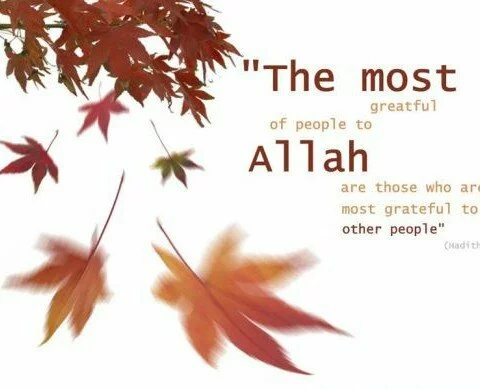In the west, many people have the wrong concept that women of the east or those following the religion Islam have no rights. They say that most women are abused in this region and suffer a lot. They say that most Muslim women are uneducated; when they are pregnant, they do all heavy chores and suffer harsh treatment from their dominant husbands. Continue Reading →
Category Archives: Hadith
Why Does Islam Forbid Magic And Sorcery?
Magic and sorcery have been seen by true Islams as advice by devils or demons and no one should indulge in any of this type of future-telling or advice. Allah and the Prophet Muhammad are the only ones who have true access to this knowledge and so they are the only ones who should be consulted on it. Allah has the answers to every problem and so should be the one to be consulted for any desire or trouble, not anyone else. However, this is not to say that magic shows are disallowed in Muslim countries, if they can prove they are only for entertainment and not for anything else.
The Prophet Abu Hurairah warned people against seven things in the world, of which magic was one of them. Whatever people consult or whomever they visit to learn these things is considered a rejection of Allah in a very bad sense, and punishment will strike these misguided people. Even the lighter forms of future-telling such as reading the stars for a person or telling their life from their palms is also forbidden. Anyone who indulges themselves with magic by visiting a witch or a soothsayer is punished by Allah by having his or her prayers ignored for forty days.
Even those who believe in it but do not practice magic are considered sinners. Magic is thought to be concerned with powers given by Satan, even though many practitioners of magic try not to bring harm to others by thoughts, deeds or other means. There is always the way down into the forbidden arts, which are considered the blackest imaginable. Many acts of absolute atrocity are committed against men, women and children and animals in the guise of magic and the lunatics who strive to make it acceptable to the world.
Magic, simple or complex, is simply seen as haraam or forbidden. It is a temptation to Man to ask of others rather than Allah for answers, future-seeing and other things, including temptation into lust, eating wrongly, consuming alcohol, all of which are forbidden in the Muslim faith. Some practitioners of the dark arts desecrate graves, eat pork and drink blood, all very wrong occupations to a Muslim and attributed to Satan, as well they should be in any country.
To a Muslim, competence in magic can only be attributed to Satan, not Allah, and, as such, it is thought the person may obtain greater powers than Allah. To a true believer this cannot be, as the only Power is Allah, and He has not given permission for this to be so. Many things are attributed to witches, warlocks and others in a Muslim country, and they will be lucky to escape with their lives if they are uncovered. Allah’s punishment is not usually very pleasant for any practitioner of the so-called dark arts.
What is the Reality of dreams according to Islam
Any person who is genuinely devoted to Allah, the prophet and his teachings, is quite often given to dreams in which the Prophet or Allah, or infrequently both, appear to them. These dreams usually leave the person refreshed and filled with joy and thankfulness to Allah at their visions. The dreams are seen as a positive future, both on earth and when the person dies and is welcomed into Allah’s presence.
Sometimes the dreams tell of good fortune coming and this usually will come true. As does the feeling of lightening of the soul that these devout people often experience. These dreams are often alluded to as the person having them being allowed to glimpse the future as far as Allah permits. These dreams, if good, also signify that the dreamer is on the right path towards Allah and is to be blessed.
The dreams can signify different things when deciphered at different times of the day. Mornings are usually positive, but evenings or afternoons can be the opposite. Dreaming of nasty things, like snakes or scorpions usually means that the person is not on track according to Allah’s wishes and needs to repent and admit to their sins. Although if a grave is opened, there will only be found the normal bones of a human body and no sign of a snake’s remains or that of a scorpion the idea is ingrained from whence the person has the dream.
When a person sleeps their soul is thought to go to Allah who returns it the next morning. If He is pleased with them, they will return refreshed and energised, if not, they will have a restless sleep and be grumpy and tired the next day because of the lack of restful sleep. People may say that they do not dream. This is untrue, as the body does dream, but often the mind covers the dreams in a cloak of secrecy because they have been too unpleasant to recall. Even good dreams may fall victim to this type of censorship by the person’s own mind. The mind is conditioned to deny things that may mean something is going to drastically change a comfortable life, or a personal one, therefore dreams are not always given their due.
Dreams are not straight-forward, either in message or appearance, but, should the person seeking enlightenment continue on, they will make sense. Some may be about something that is weighing heavily on the person’s mind which may be work or personal reasons. Other times, if the person is extremely devout, they may simply be affirmations of this to the person’s inner self should some small doubt have surfaced? Many dreams may simply be a reflection of the way the person is feeling, or an illness that has not been suspected, and may be a warning of this potential problem.
Allah’s plan for You and Me
Have you ever thought about the fact that Almighty Allah has a plan for you and every one alive even before conception by your parents? As a Muslim, you should know that this is definitely true whether you have thought about it or not. There is this basic teaching of Islam that states that when you do not achieve success in certain things you have worked hard for, you have to believe that Allah knows in his Omnipotence that is not the best thing for you at this time.
He has either delayed it to a better time or prepared something greater for you. This is very similar to the common saying that states “Man Proposes, God Disposes”. We will stretch this article further with examples and verses from the Quran and Hadith for better explanations
Allah’s Plan and Al-Qadar
Sit back and reflect on the fact that Almighty Allah created the Earth, The Heavens, all that is in between them and beyond them. Therefore, he has a plan for all of his creatures and to live a fulfilled life, you have to understand how to tap into Allah’s Plan for you. As Muslims, we should believe that Allah has the best plan for us and this plan is flexible, glorious and in a way tied to Al-Qadar or individual destinies. According to Suratul Hajj, verse 70; “Know you not that Allah knows all that is in the heaven and on the earth? Verily, it is (all) in the Book (Al‑Lawh Al‑Mahfooz). Verily, that is easy for Allah”.
This means that the master planner, Allah has decreed everything that will happen. In the Hadith also, Abdullah ibn Amr ibn Al-Aas (may Allah be pleased with him) narrated that “I heard the Messenger of Allah (peace and blessings of Allah be upon him) say: Allah wrote down the decrees of creation fifty thousand years before He created the heavens and the earth.”
Therefore, we must understand that Allah has a good plan for us in this life and the hereafter. To key into that plan which is definitely the best for us, we should abide by the teachings of Islam and place Almighty Allah first in all of our worldly endeavours. While in search of a job, a wife or before embarking on any money making venture, we should pray to Allah in order to achieve success and be guided aright.
It must also be noted that Allah’s plan does not prevent us from exercising our free will as humans, especially as there are two types of Qadar, one which is fixed and the other flexible. To live a happy life, we should obey Allah’s commandments, pray hard, and work hard in legal ways in order to live a comfortable life. If we do this, with Allah’s help, we will definitely key into his plan for us and be among the successful ones both in this life and in the hereafter.
Ma Salam.
Ramadan : Fasting in the Hadith
Do You Know?
1.5 billion Muslims of the world celebrate their holiest month of Ramadan every year. It is an obligation on every adult and healthy Muslim to fast during the month of Ramadan. Fasting is a total abstention from eating, drinking, and sexual relations from dawn to dusk for 29 or 30 days of the month of Ramadan. Also, avoiding immoral behavior and anger and showing compassion is part of the requirements of the fasting. The month of Ramadan is also the month in which the Holy Quran was revealed to Prophet Muhammad (peace be upon him) in piecemeal basis over a period of 23 years. It is a very joyous occasion for the Muslims of the world. Muslims fast during the day and pray and read Quran during the part of the night.
A Few Hadith On Fasting:
- Sahih Bukhari :: Book# 31 :: Hadith# 115
Narrated Talha bin ‘Ubaid-Ullah: A bedouin with unkempt hair came to Allah’s Apostle and said, “O Allah’s Apostle! Inform me what Allah has made compulsory for me as regards the prayers.” He replied: “You have to offer perfectly the five compulsory prayers in a day and night (24 hours), unless you want to pray Nawafil.” The bedouin further asked, “Inform me what Allah has made compulsory for me as regards fasting.” He replied, “You have to fast during the whole month of Ramadan, unless you want to fast more as Nawafil.” The bedouin further asked, “Tell me how much Zakat Allah has enjoined on me.” Thus, Allah’s Apostle informed him about all the rules (i.e. fundamentals) of Islam. The bedouin then said, “By Him Who has honored you, I will neither perform any Nawafil nor will I decrease what Allah has enjoined on me. Allah’s Apostle said, “If he is saying the truth, he will succeed (or he will be granted Paradise).”
- Sahih Bukhari :: Book# 31 :: Hadith# 118
Narrated Abu Huraira: Allah’s Apostle said, “Fasting is a shield (or a screen or a shelter). So, the person observing fasting should avoid sexual relation with his wife and should not behave foolishly and impudently, and if somebody fights with him or abuses him, he should tell him twice, ‘I am fasting.” The Prophet added, “By Him in Whose Hands my soul is, the smell coming out from the mouth of a fasting person is better in the sight of Allah than the smell of musk. (Allah says about the fasting person), ‘He has left his food, drink and desires for My sake. The fast is for Me. So I will reward (the fasting person) for it and the reward of good deeds is multiplied ten times.”
- Sahih Bukhari :: Book# 31 :: Hadith# 120
Narrated Sahl: The Prophet said, “There is a gate in Paradise called Ar-Raiyan, and those who observe fasts will enter through it on the Day of Resurrection and none except them will enter through it. It will be said, ‘Where are those who used to observe fasts?’ They will get up, and none except them will enter through it. After their entry the gate will be closed and nobody will enter through it.”
- Sahih Bukhari :: Book# 31 :: Hadith# 123
Narrated Abu Huraira: Allah’s Apostle said, “When the month of Ramadan starts, the gates of the heaven are opened and the gates of Hell are closed and the devils are chained.”
- Sahih Bukhari :: Book# 31 :: Hadith# 124
Narrated Ibn Umar: I heard Allah’s Apostle saying, “When you see the crescent (of the month of Ramadan), start fasting, and when you see the crescent (of the month of Shawwal), stop fasting; and if the sky is overcast (and you can’t see It) then regard the crescent (month) of Ramadan (as of 30 days)”.
- Sahih Bukhari :: Book# 31 :: Hadith# 125
Narrated Abu Huraira: The Prophet said, “Whoever established prayers on the night of Qadr out of sincere faith and hoping for a reward from Allah, then all his previous sins will be forgiven; and whoever fasts in the month of Ramadan out of sincere faith, and hoping for a reward from Allah, then all his previous sins will be forgiven.”
- Sahih Bukhari :: Book# 31 :: Hadith# 126
Narrated Ibn ‘Abbas: The Prophet was the most generous amongst the people, and he used to be more so in the month of Ramadan when Gabriel visited him, and Gabriel used to meet him on every night of Ramadan till the end of the month. The Prophet used to recite the Holy Qur’an to Gabriel, and when Gabriel met him, he used to be more generous than a fast wind (which causes rain and welfare).
- Sahih Bukhari :: Book# 31 :: Hadith# 127
Narrated Abu Huraira: The Prophet said, “Whoever does not give up forged speech and evil actions, Allah is not in need of his leaving his food and drink (i.e. Allah will not accept his fasting.)”
- Sahih Bukhari :: Book# 31 :: Hadith# 128
Narrated Abu Huraira: Allah’s Apostle said, “Allah said, ‘All the deeds of Adam’s sons (people) are for them, except fasting which is for Me, and I will give the reward for it.’ Fasting is a shield or protection from the fire and from committing sins. If one of you is fasting, he should avoid sexual relation with his wife and quarreling, and if somebody should fight or quarrel with him, he should say, ‘I am fasting.’ By Him in Whose Hands my soul is’ The unpleasant smell coming out from the mouth of a fasting person is better in the sight of Allah than the smell of musk. There are two pleasures for the fasting person, one at the time of breaking his fast, and the other at the time when he will meet his Lord; then he will be pleased because of his fasting.”
- Sahih Bukhari :: Book# 31 :: Hadith# 212
Narrated Abu Sa’id: The Prophet forbade the fasting of ‘Id-ul-Fitr and ‘Id-ul-Adha (two feast days) and also the wearing of As-Samma’ (a single garment covering the whole body), and sitting with one’s leg drawn up while being wrapped in one garment. He also forbade the prayers after the Fajr (morning) and the ‘Asr (afternoon) prayers.
- Sahih Bukhari :: Book# 32 :: Hadith# 226
Narrated Abu Huraira: I heard Allah’s Apostle saying regarding Ramadan, “Whoever prayed at night in it (the month of Ramadan) out of sincere Faith and hoping for a reward from Allah, then all his previous sins will be forgiven.”
- Sahih Bukhari :: Book# 32 :: Hadith# 228
Narrated ‘Aisha: (the wife of the Prophet) Allah’s Apostle used to pray (at night) in Ramadan.
- Sahih Bukhari :: Book# 32 :: Hadith# 231
Narrated Abu Huraira: The Prophet said, “Whoever fasted the month of Ramadan out of sincere Faith (i.e. belief) and hoping for a reward from Allah, then all his past sins will be forgiven, and whoever stood for the prayers in the night of Qadr out of sincere Faith and hoping for a reward from Allah, then all his previous sins will be forgiven .”
- Sahih Bukhari :: Book# 32 :: Hadith# 233
Narrated Abu Salama: I asked Abu Sa’id, and he was a friend of mine, (about the Night of Qadr) and he said, “We practiced Itikaf (seclusion in the mosque) in the middle third of the month of Ramadan with the Prophet . In the morning of the 20th of Ramadan, the Prophet came and addressed us and said, ‘I was informed of (the date of the Night of Qadr) but I was caused to forget it; so search for it in the odd nights of the last ten nights of the month of Ramadan. (In the dream) I saw myself prostrating in mud and water (as a sign). So, whoever was in l’tikaf with me should return to it with me (for another 10-day’s period)’, and we returned. At that time there was no sign of clouds in the sky but suddenly a cloud came and it rained till rain-water started leaking through the roof of the mosque which was made of date-palm leaf stalks. Then the prayer was established and I saw Allah’s Apostle prostrating in mud and water and I saw the traces of mud on his forehead.”
- Sahih Bukhari :: Book# 32 :: Hadith# 237
Narrated ‘Aisha: Allah’s Apostle used to practice Itikaf in the last ten nights of Ramadan and used to say, “Look for the Night of Qadr in the last ten nights of the month of Ramadan ,”
- Sahih Bukhari :: Book# 32 :: Hadith# 241
Narrated ‘Aisha: With the start of the last ten days of Ramadan, the Prophet used to tighten his waist belt (i.e. work hard) and used to pray all the night, and used to keep his family awake for the prayers.
Source: doyoukno.wordpress.com
Five types of Martyrs
[Sahih Bukhari : Volume 1, Book 11, Number 624]
Narrated Abu Huraira (Radi Allah Anhu): Allah’s Apostle (sal-allahu-alleihi-wasallam) said:
“While a man was going on a way, he saw a thorny branch and removed it from the way and Allah became pleased by his action and forgave him for that.”
Then the Prophet (sal-allahu-alleihi-wasallam) said, “Five are martyrs:
1. One who dies of plague,
2. One who dies of an abdominal disease,
3. One who dies of drowning,
4. One who is buried alive (and) dies
5. And One who is killed in Allah’s cause.”
The Prophet (sal-allahu-alleihi-wasallam) further said, “If the people knew the reward for pronouncing the Adhan and for standing in the first row (in the congregational prayer) and found no other way to get it except by drawing lots they would do so.
And if they knew the reward of offering the Zuhr prayer early (in its stated time), they would race for it.
And they knew the reward for ‘Isha’ and Fajr prayers in congregation, they would attend them even if they were to crawl’.”






